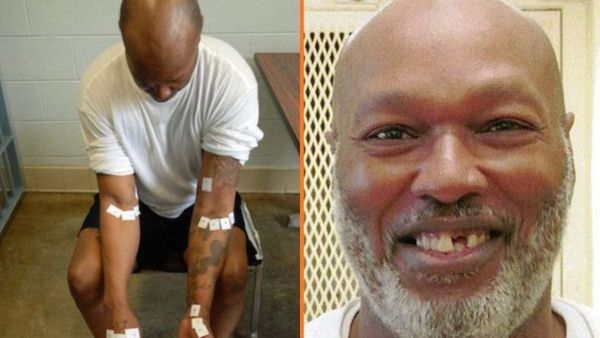
Rachel Reeves will raise £7.5bn from millions of workers by freezing tax thresholds at the budget, after her decision to scrap controversial plans to raise income tax led to a sell-off in the bond market.
Government sources said the chancellor had decided to maintain the level at which people start paying income tax for two years while abandoning plans to raise the headline rate, which would have broken a manifesto promise.
The two-year freeze on thresholds will raise more income tax from workers due to inflation and wage growth.
Reeves had been expected to raise income tax by up to 2p, potentially alongside a one-year extension of the freeze in thresholds.
Her last-minute change in tack came after a turbulent week for the government after Keir Starmer’s allies briefed that he would fight any leadership coup, with some pointing to the health secretary, Wes Streeting, as a challenger – which he denied.
The episode has left Starmer’s authority weakened and the prime minister under pressure from MPs not to let the budget worsen Labour’s political position.
Reeves had been indicating for weeks that she was prepared to raise income tax for the first time in decades in order to plug a hole in the public finances and reassure the markets that she is committed to fiscal discipline.
Her choice to raise a smaller amount in taxes instead through a broader range of measures sparked a sell-off in the markets as investors pushed government borrowing costs higher and the pound lower.
Treasury sources have suggested Reeves is now looking for an extra buffer of £15bn, but that is less than many bond investors had expected, increasing the risk that the budget will be badly received in the markets.
The Treasury declined to comment on budget speculation but sources familiar with government deliberations said the decision to switch approach had come on Wednesday after talks between Reeves and Starmer.
Officials said the change had been made because forecasts showed Reeves’ fiscal black hole was closer to £20bn than £30bn, allowing her to take less radical steps to raise money.
Instead of raising income tax rates, the chancellor has decided to freeze thresholds for two years, a move that economists estimate will raise £7.5bn.
The decision comes a year after Reeves argued against exactly such a move. She said in her 2024 budget speech: “Extending the threshold freeze would hurt working people, it would take more money out of their payslips.”
Other likely tax rises include a move to end tax breaks for salary sacrifice pension schemes, raising about £2bn, and a new tax on electric vehicles, also estimated to raise £2bn.
However, Reeves would need a lot more than these to plug the £20bn fiscal hole and increase headroom to £15bn, with the market reaction suggesting investors are sceptical about the ability of a range of smaller measures to fill the gap.
Some of the other possibility floated so far include more tax on higher-value properties, extra taxes on landlords’ income from rental properties, and a gambling tax.
Downing Street said on Friday: “The chancellor has been clear on the need to deliver stability in the public finances. As she said last week, one of the objectives of the budget is to build more resilient public finances with the headroom to withstand global turbulence.”
The decision not to raise income tax rates was taken after weeks of careful planning for just such a move, including briefing Labour MPs on why difficult decisions would need to be taken to balance the government books.
Government insiders said the decision was taken on Wednesday, the same day the prime minister was forced to deny reports that his aides had briefed against Streeting in an attempt to shore up his own position.
Streeting welcomed the decision on Friday, having warned earlier in the week that breaking the manifesto pledge risked losing the trust of voters.
He told LBC Radio: “I’m not in favour of breaking manifesto pledges. I think that trust in politics and politicians is low and it’s part of our responsibility to not only rebuild our economy and rebuild our public services but to rebuild trust in politics itself.”
Other cabinet ministers are also understood to have expressed concerns about the political implications of raising income tax rates. Lucy Powell, the deputy leader, had said she was opposed to the move, while stressing it was a matter for the chancellor.
Some MPs argued that the late change gave the impression that the government was not in control. One senior Labour MP said they thought Reeves “will end up having to go after this debacle of a budget” and warned against any further attempt to U-turn on ending the two-child benefit limit, saying that would “lead to a complete revolt”.
Another Labour MP said Starmer had been told by many in the parliamentary party this week that he was losing the room but he “refused to listen to criticism”. “They don’t know what they are doing and there is 10 days left of this mess,” they said.
That assessment was underlined by a turbulent day in the markets, with UK government bonds on track for their worst day since 2 July, when investors responded to a tearful appearance by Reeves in the Commons. Meanwhile, the pound dropped against the dollar.
Kathleen Brooks, a research director at the brokerage XTB, said: “Bond market volatility is not what the chancellor wants to see with less than two weeks to go before the budget. Essentially, the bond market is warning the chancellor that she cannot merely tax the ‘rich’ to fund her lavish spending pledges. Either she broadens the tax base or she cuts spending.”
Ruth Curtice, the chief executive of the Resolution Foundation and a former Treasury tax and spending official, said it was normal for the OBR’s forecasts to change in the run-up to the budget. However, she said “excessive levels of kite flying” were fuelling market volatility.
“It is not normal for so much of that to be laid bare in public,” she said. “The market moves this morning and in recent weeks suggest a serious look should be taken at the approach to market-sensitive forecast information.”







